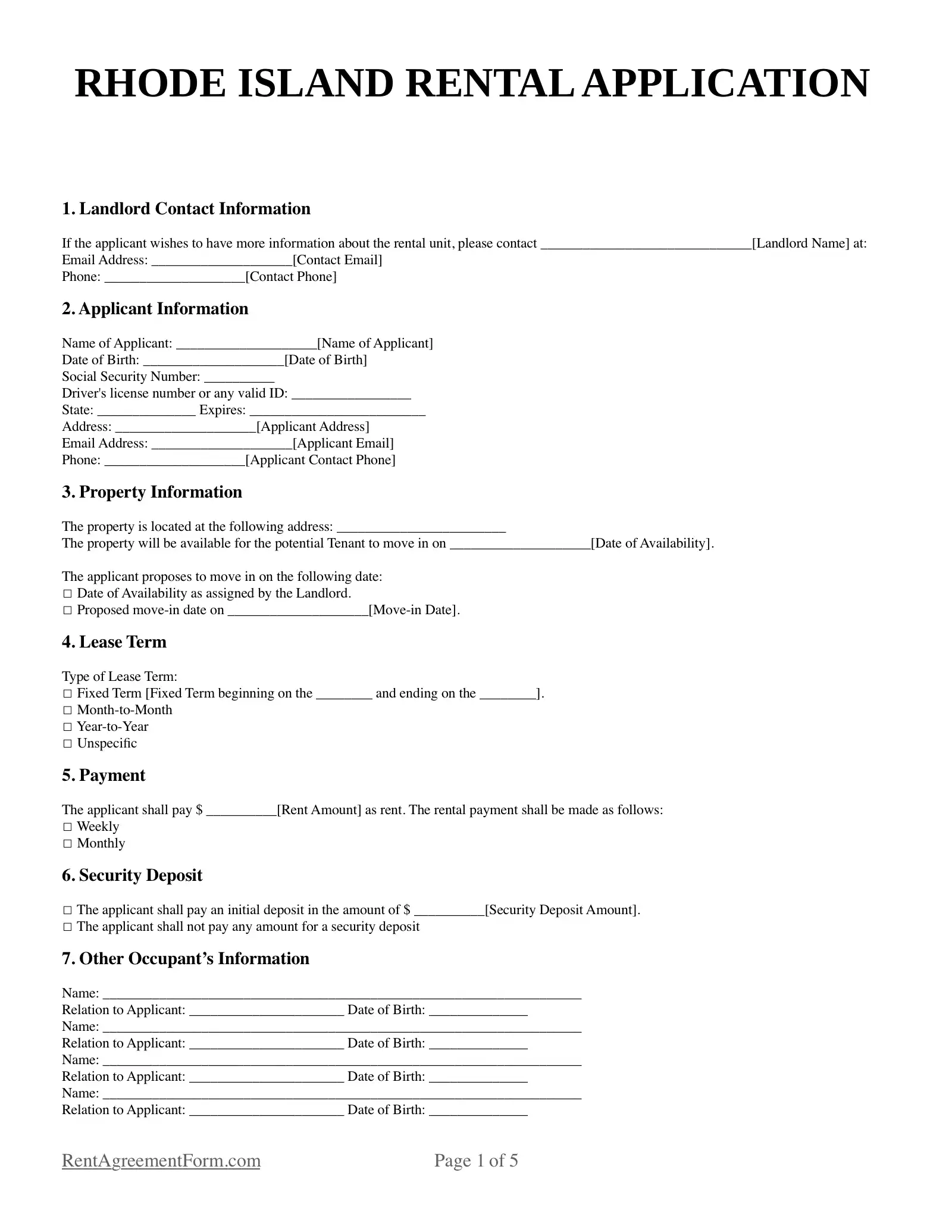Rhode Island Rental Application Form
A Rhode Island rental application form is a legal document used to screen potential tenants for a property. Property managers, owners, and landlords use them to choose the most suitable tenant to take on for the next year or longer.
The rental application form is an important element that kickstarts the leasing process and allows the property owner to assess the background, income, and even the possible criminal history of prospective tenants. Landlords can reject applicants who cannot demonstrate the ability to pay on time or become a nuisance and cause damage to the property.
Rhode Island has several types of rental applications depending on the property and the possible tenants:
- Standard/General Application
- Department of Housing and Urban Development Rental Application (for tenants eligible for subsidized housing)
The landlord must ask for relevant details in the application form and provide the appropriate information to find the right tenant for the property.
Note that the Federal Fair Housing Act protects potential tenants from discrimination based on gender, race, religion, familial status, and more.
Landlords are also required to disclose pertinent data about the property. These include its state and condition, potential risks the tenant might face living in the property, utility arrangements, rent control, policies on pets and smoking, fees, etc.

Rental Application Fee for Rhode Island
Rhode Island has no limit on the maximum rental application fee that a landlord can charge their prospective tenants. This fee is non-refundable and will be used for administrative tasks, background checks, eviction records, contacting personal references, and reviewing the prospective tenant's credit history.
The exact amount is up to the landlord, but it is recommended to be around $30 or the cost of the background check.
Security Deposits in Rhode Island Rental Applications
Rhode Island law states the security deposit should not exceed one month’s rent. The deposit should be returned to the tenant once the lease expires.
If the tenant has unpaid dues, cleaning expenses, or has caused monetary damage to the premises beyond ordinary wear and tear, the property owner has the right to deduct the costs from the security deposit.
The landlord can return the security deposit along with a notice of the tenant’s non-compliance within 20 days after the termination of the rental contract (RI Gen. Laws § 34-18-19).